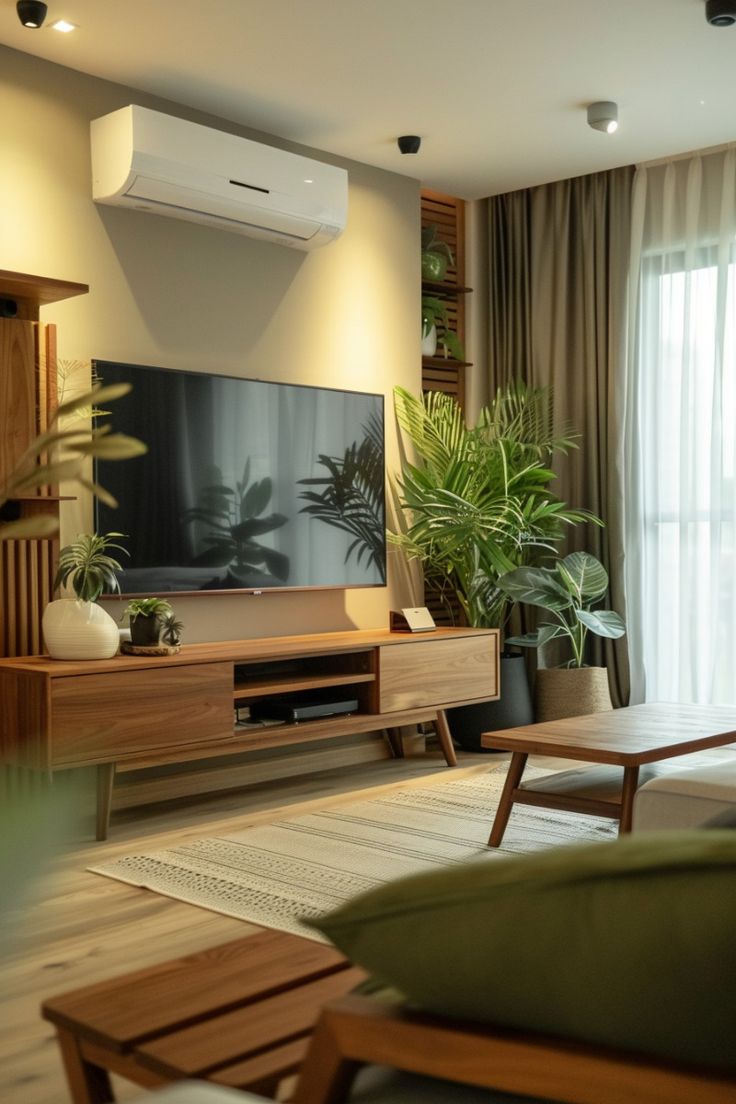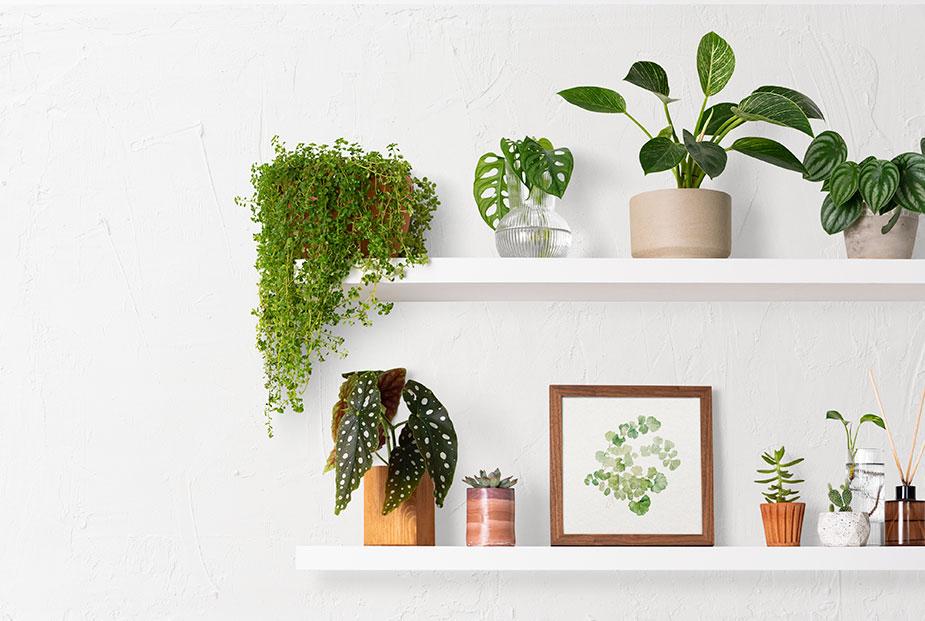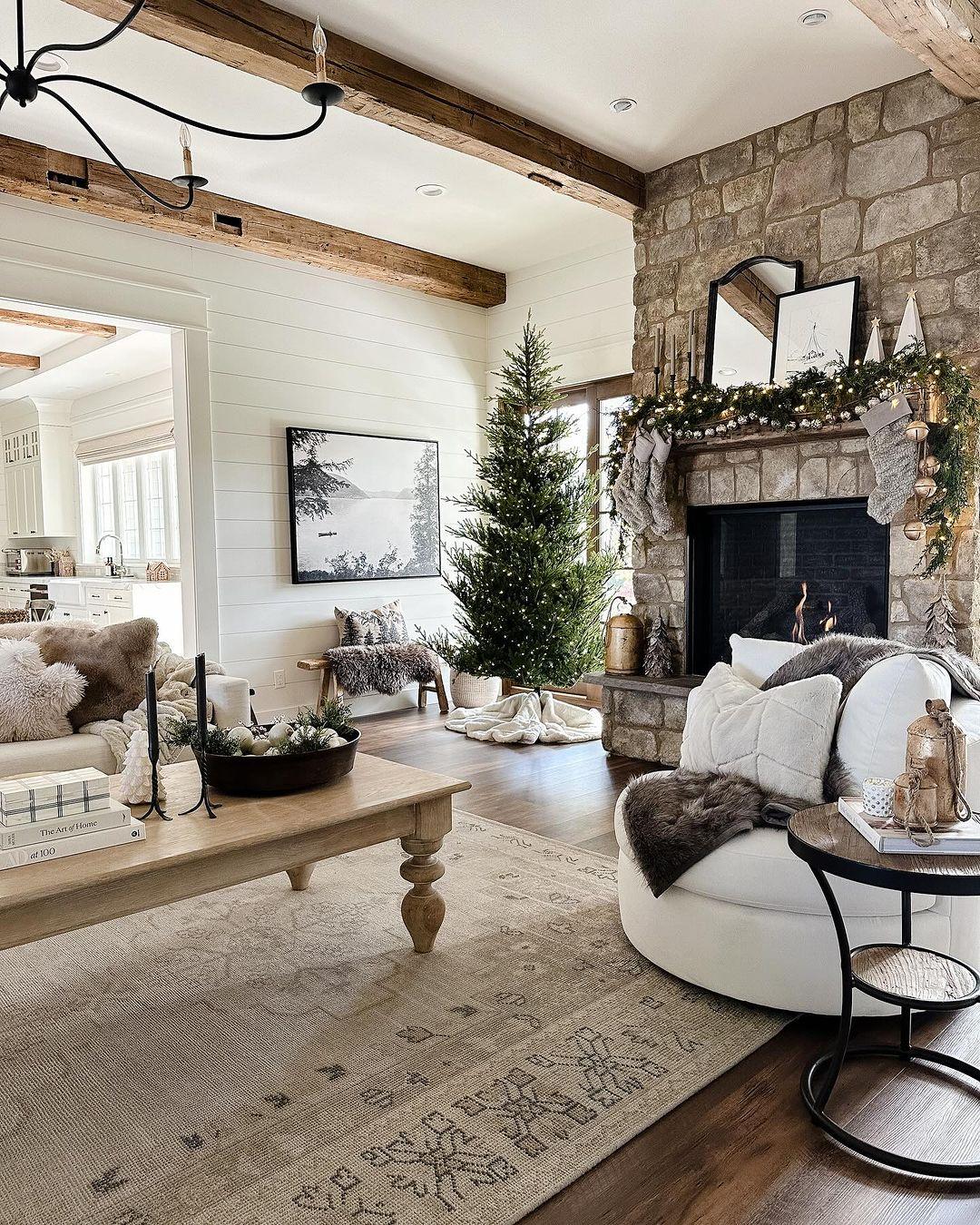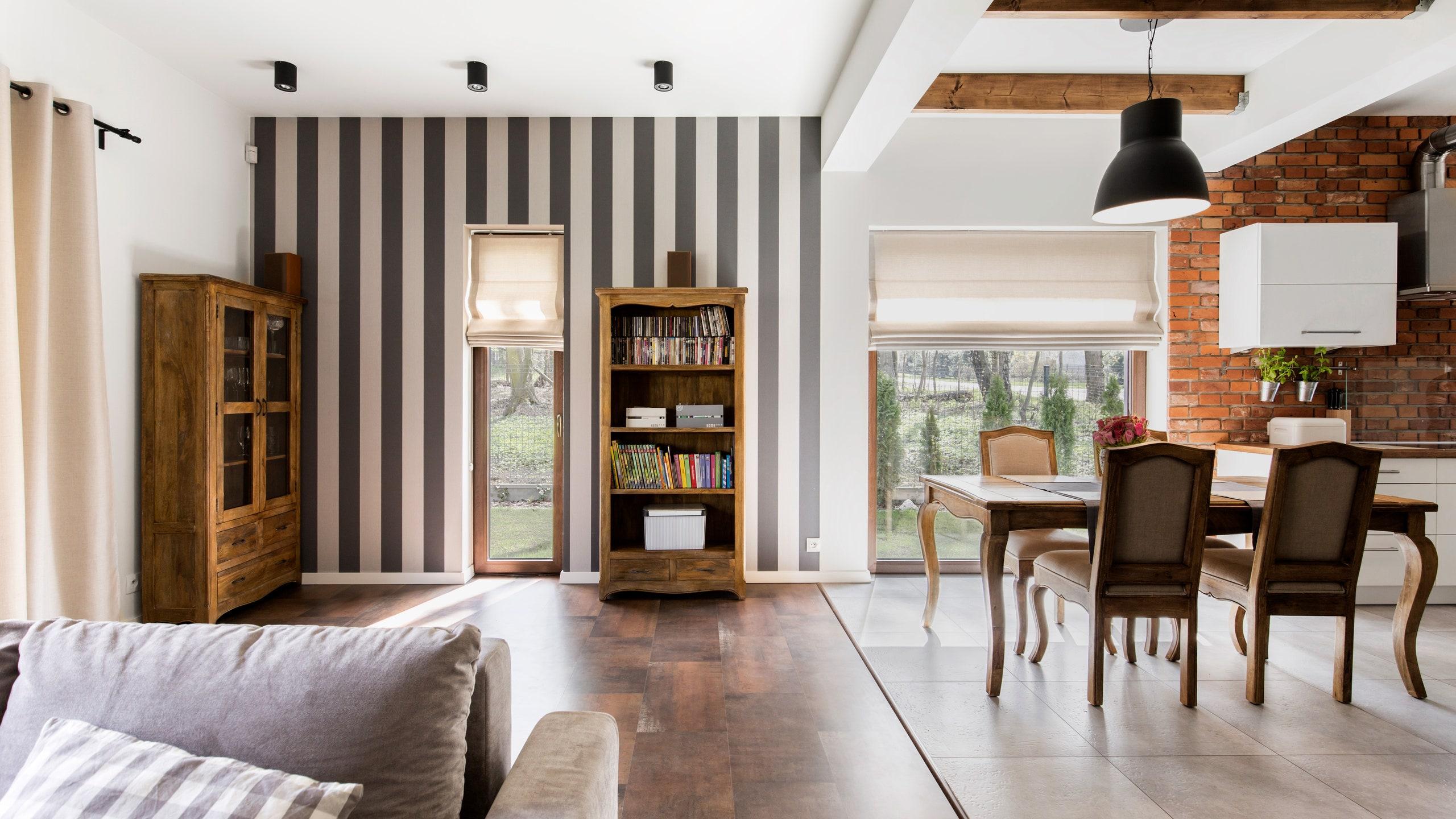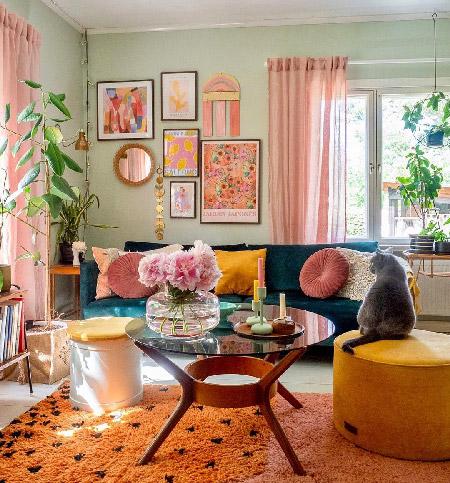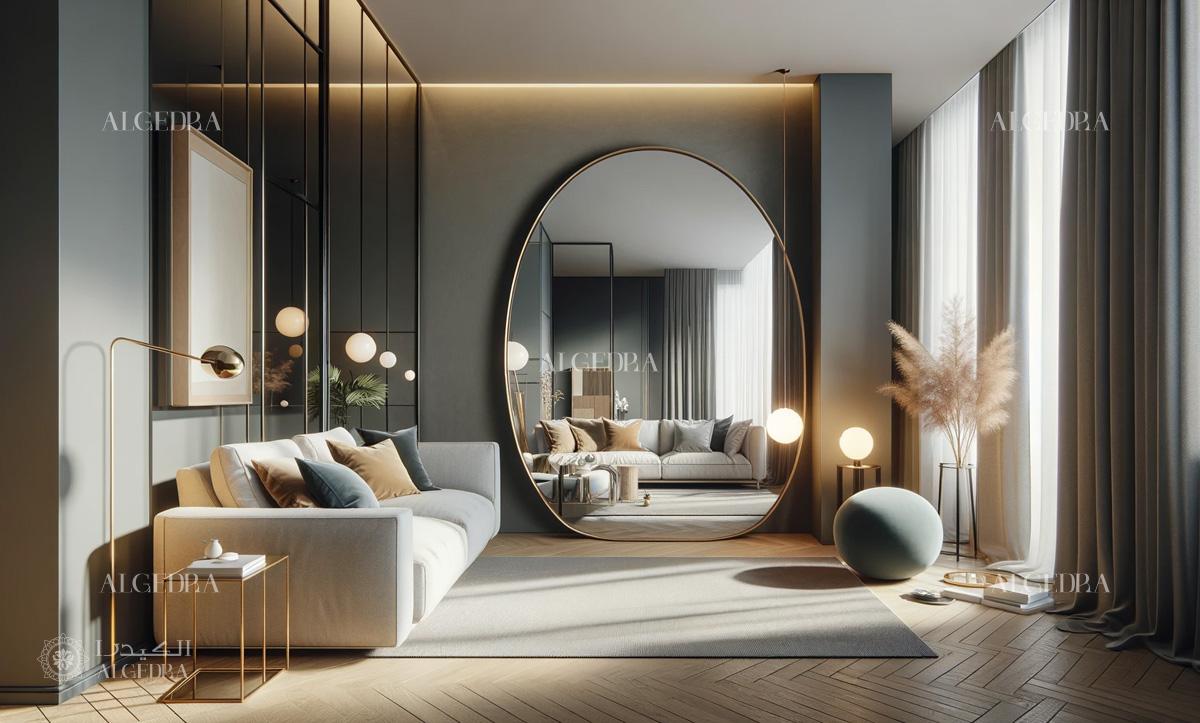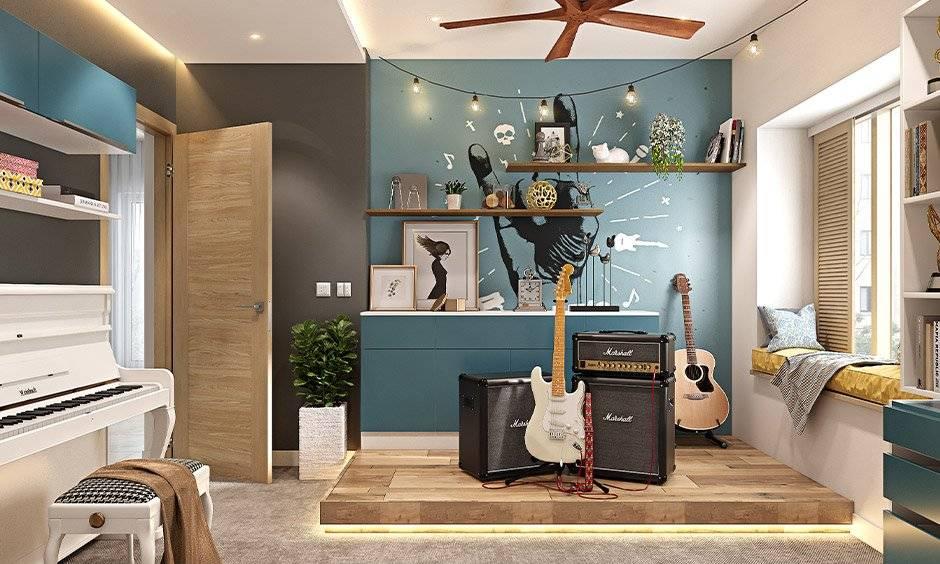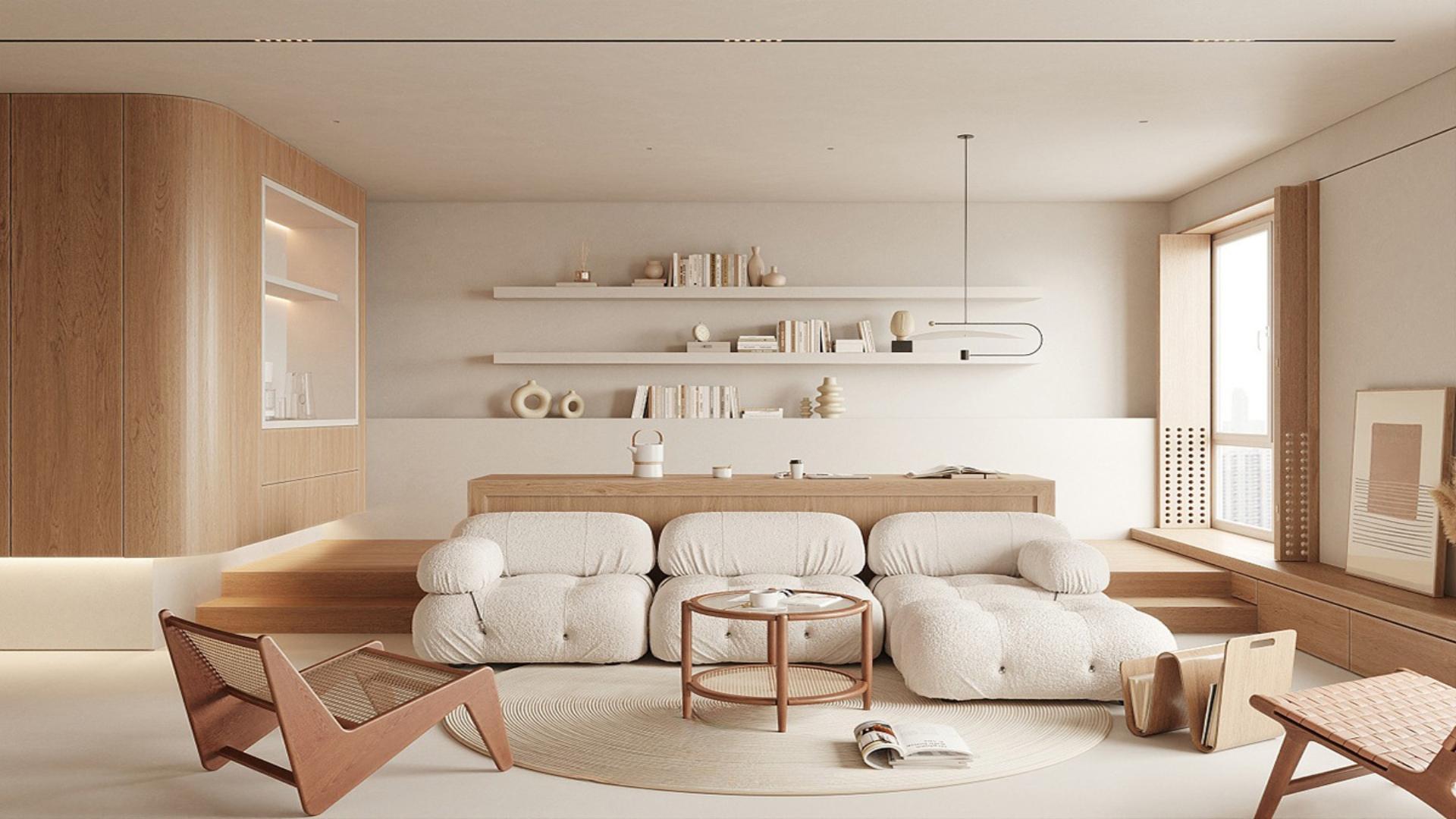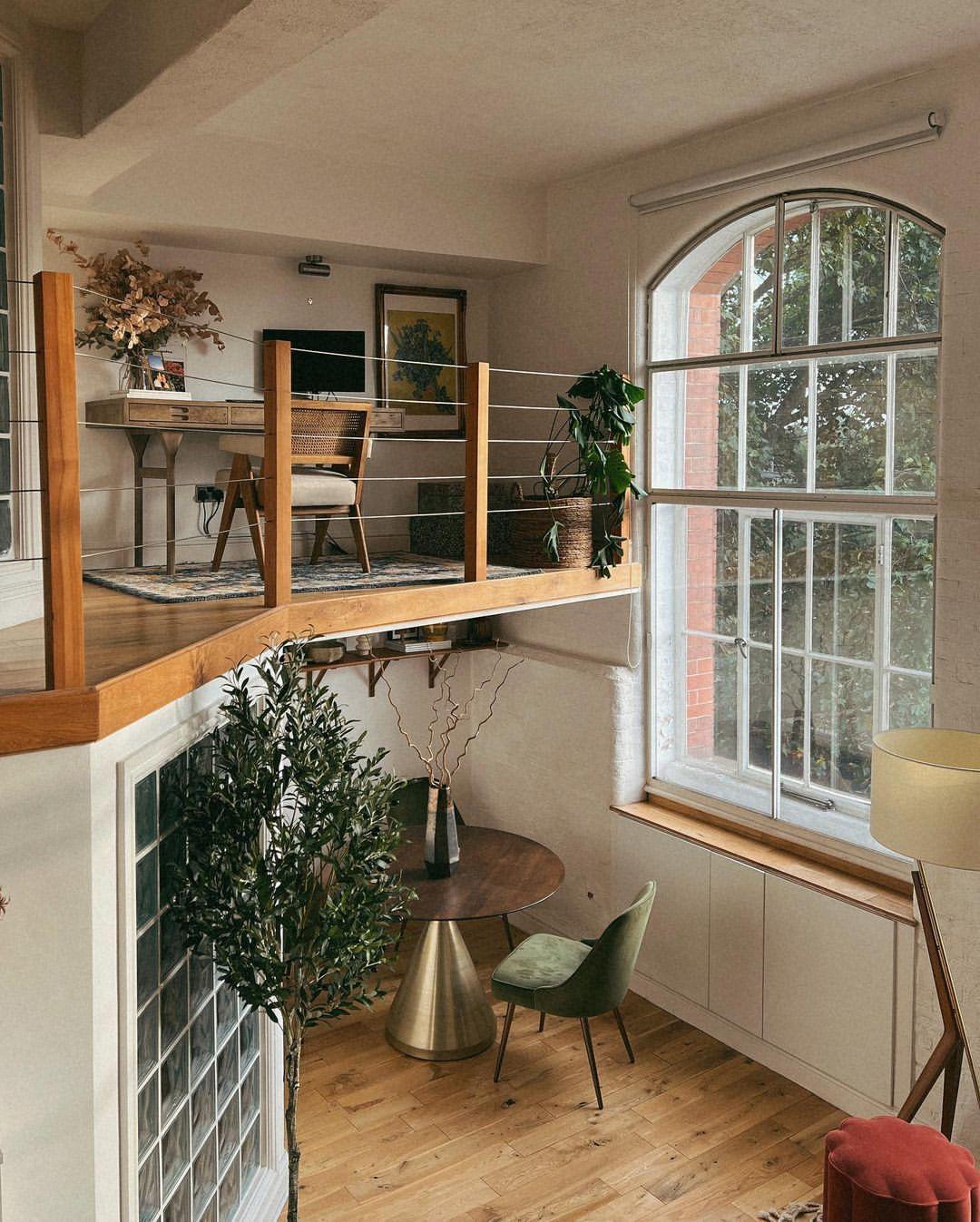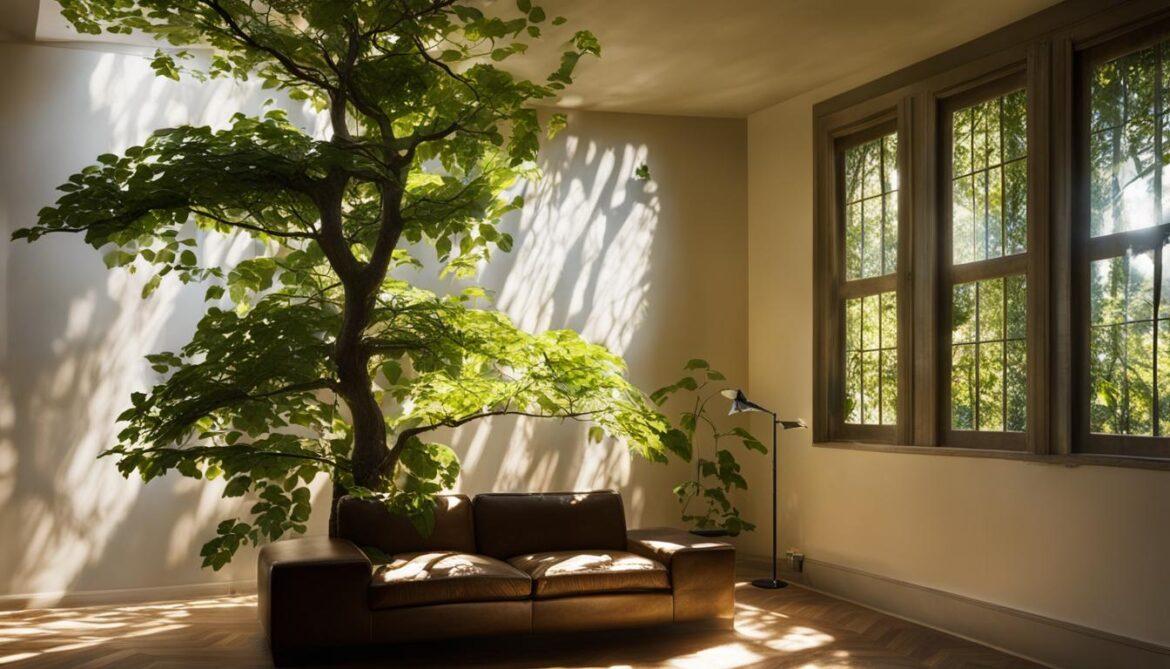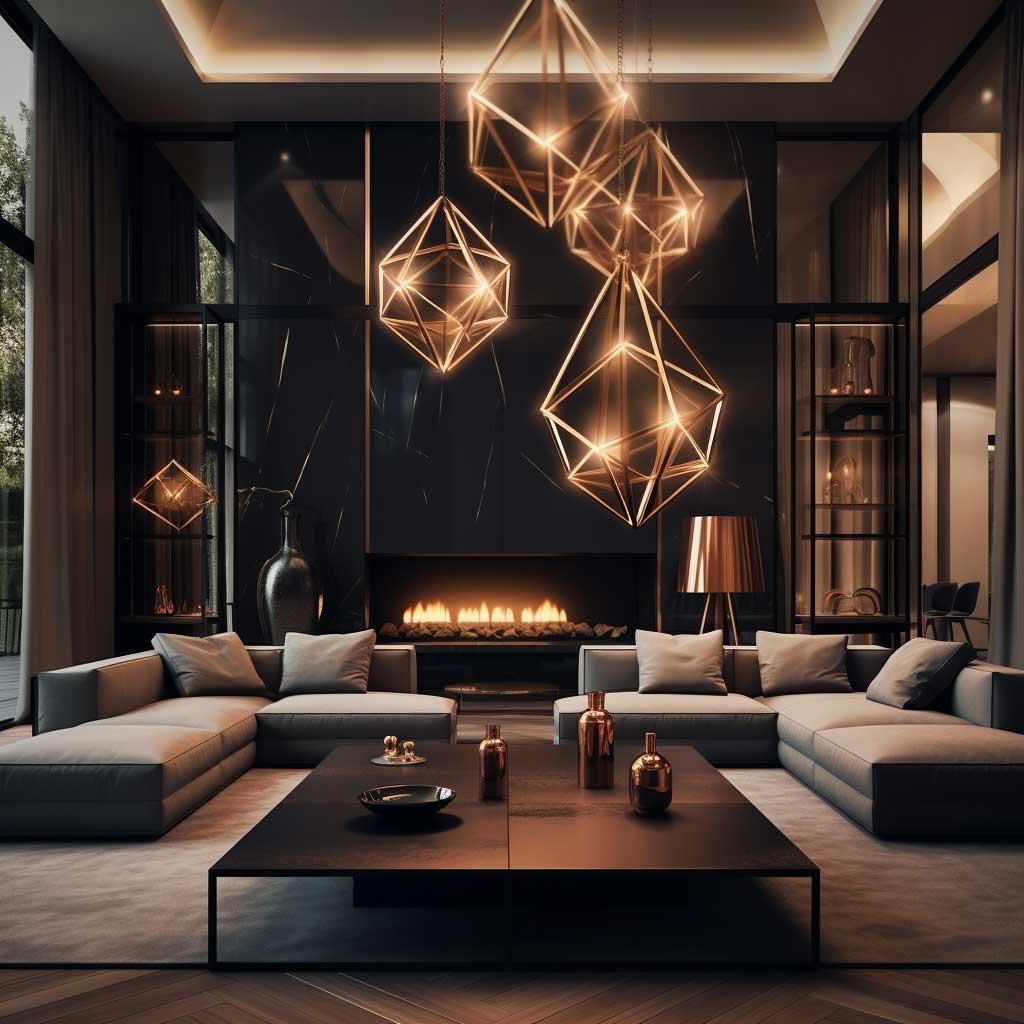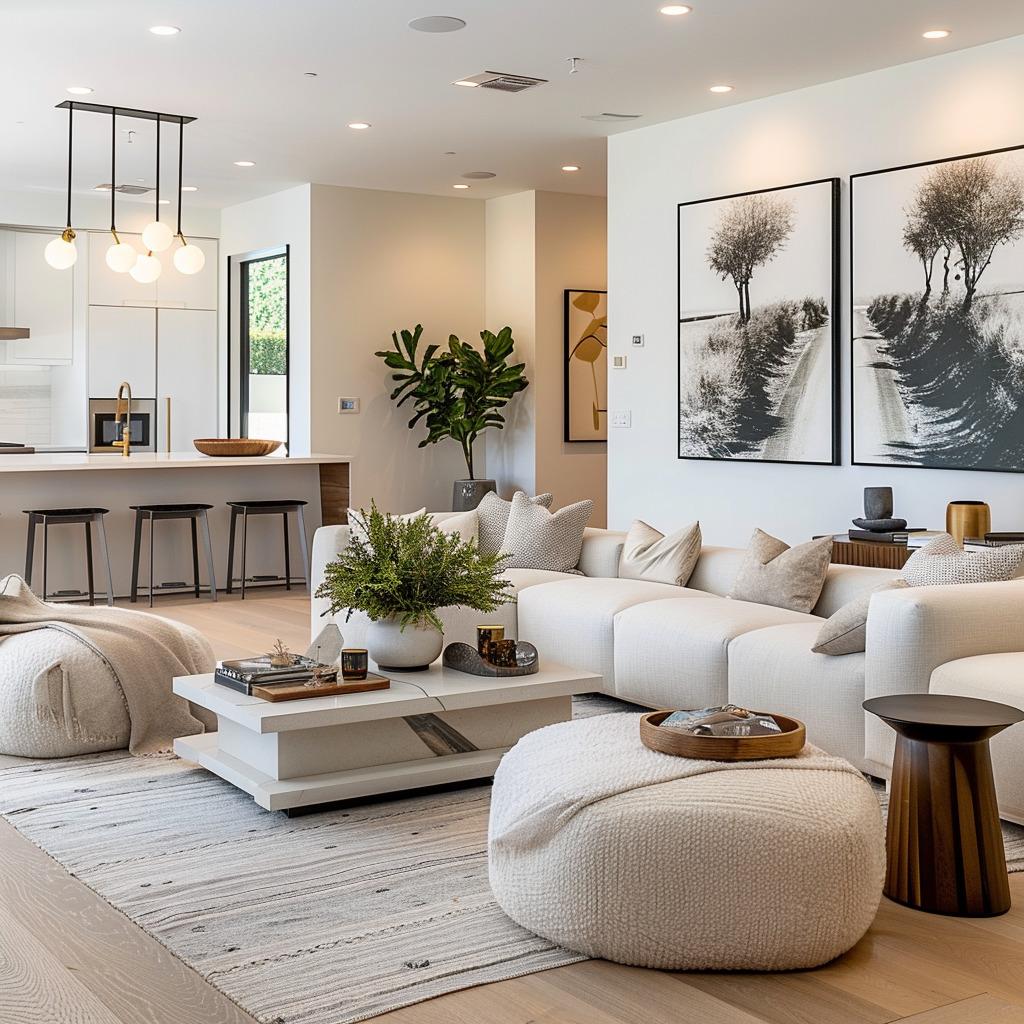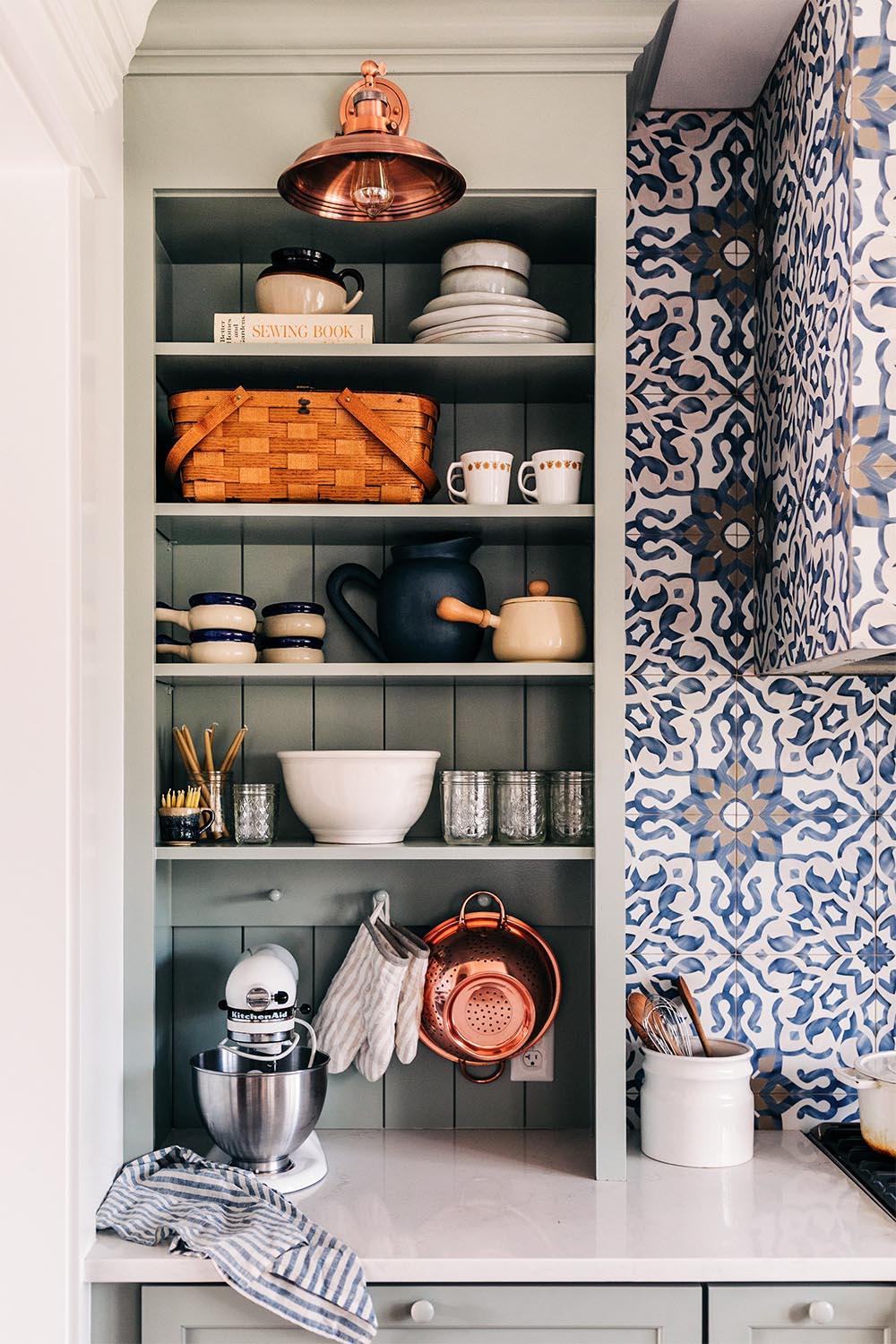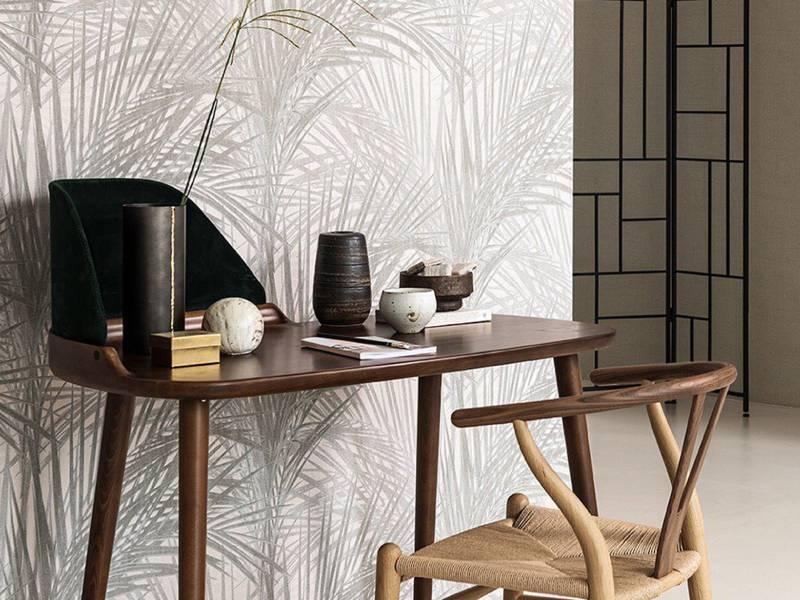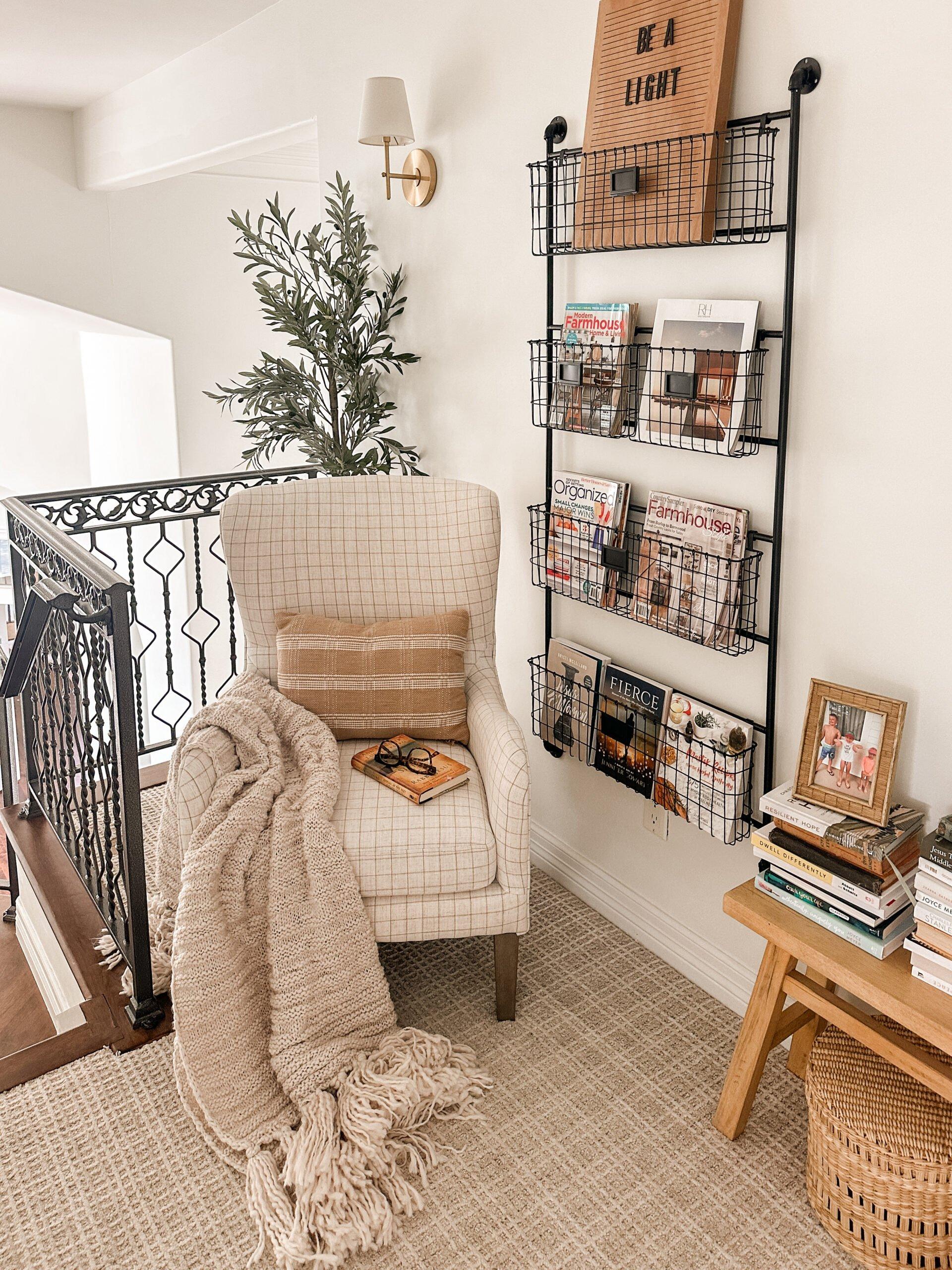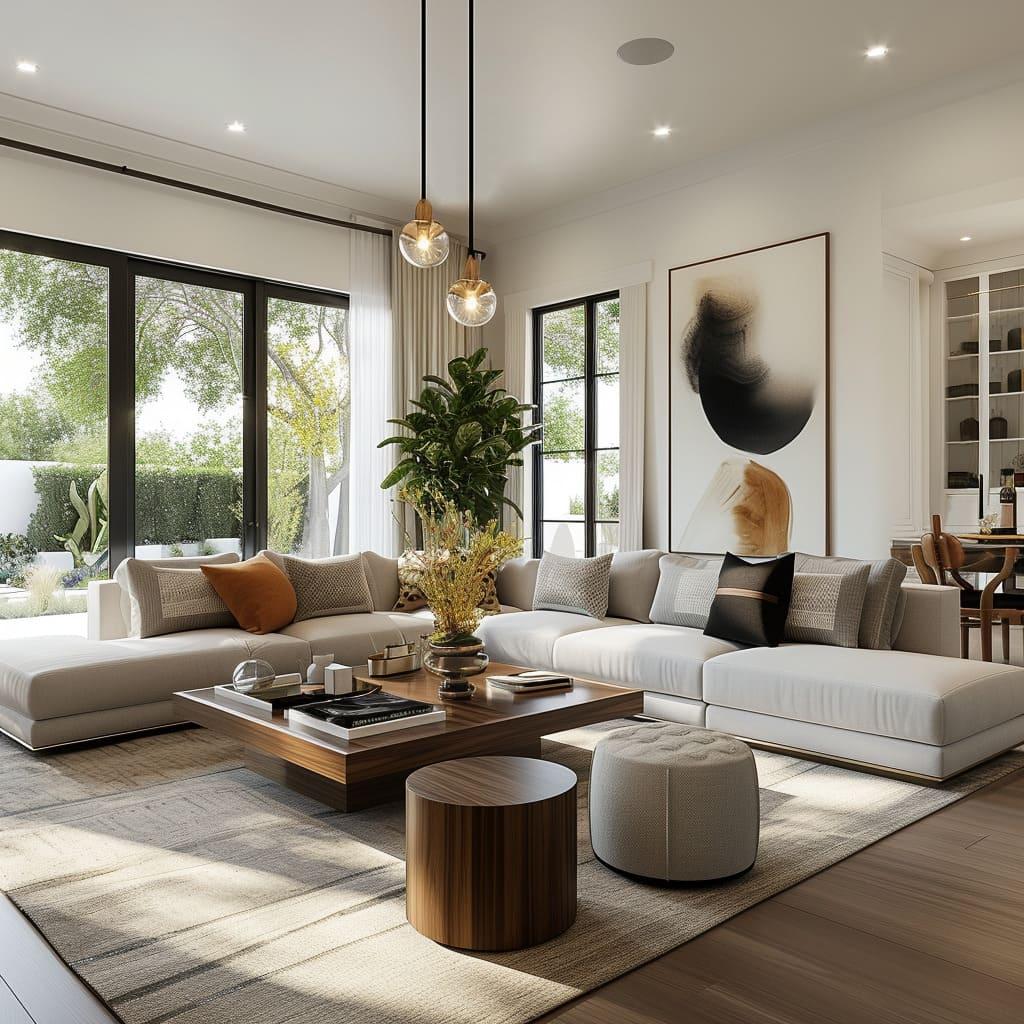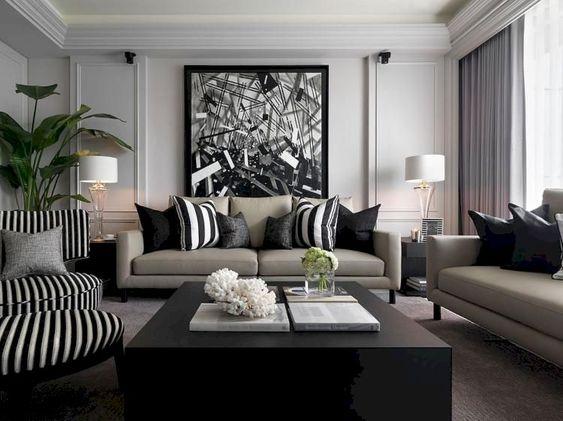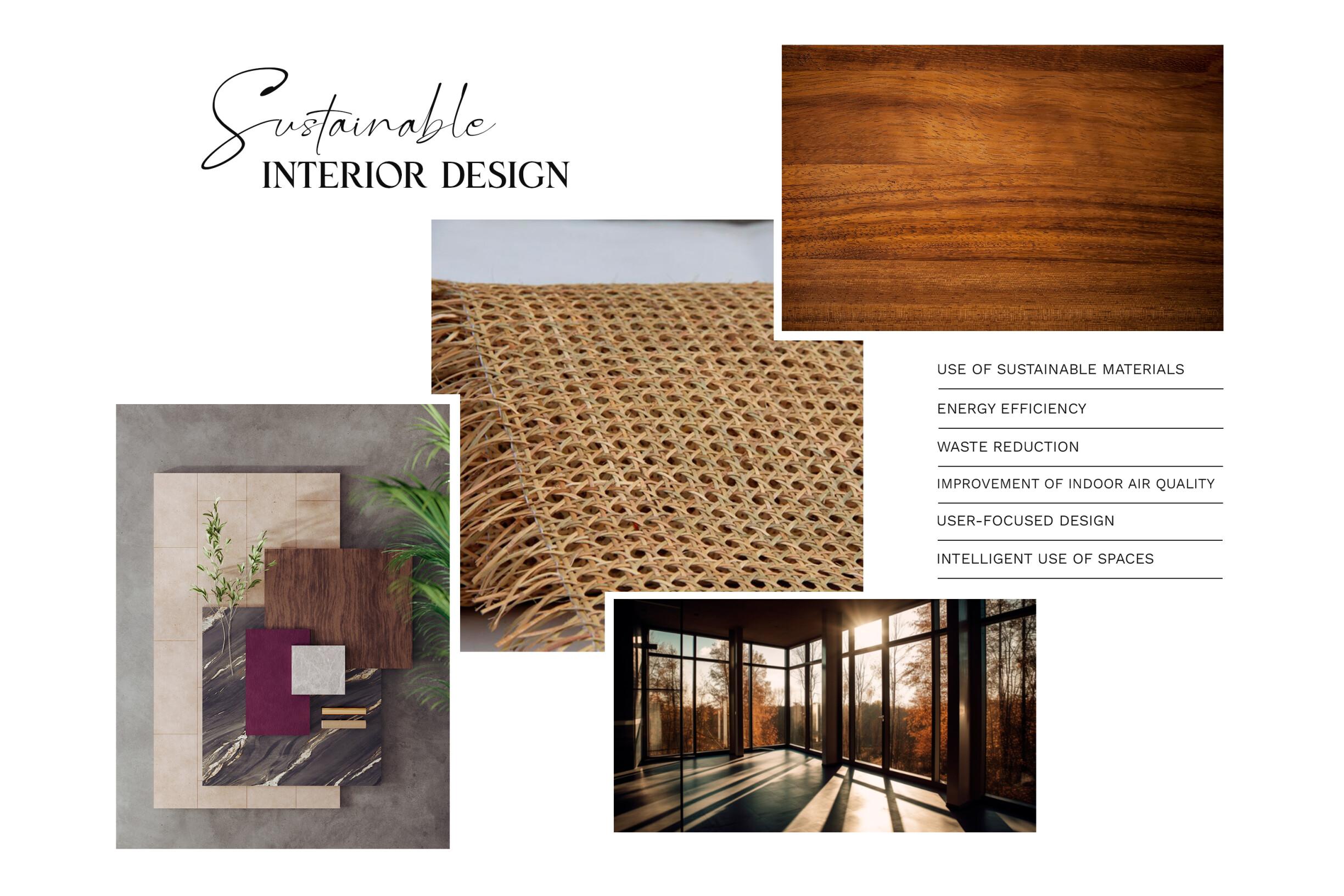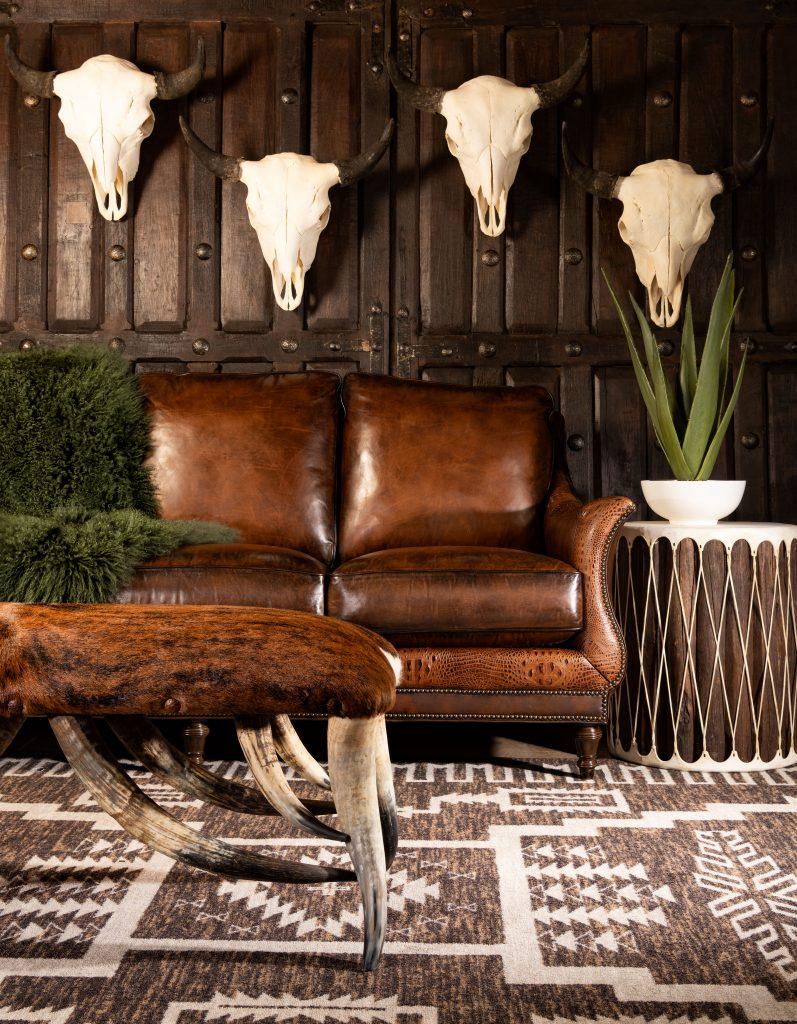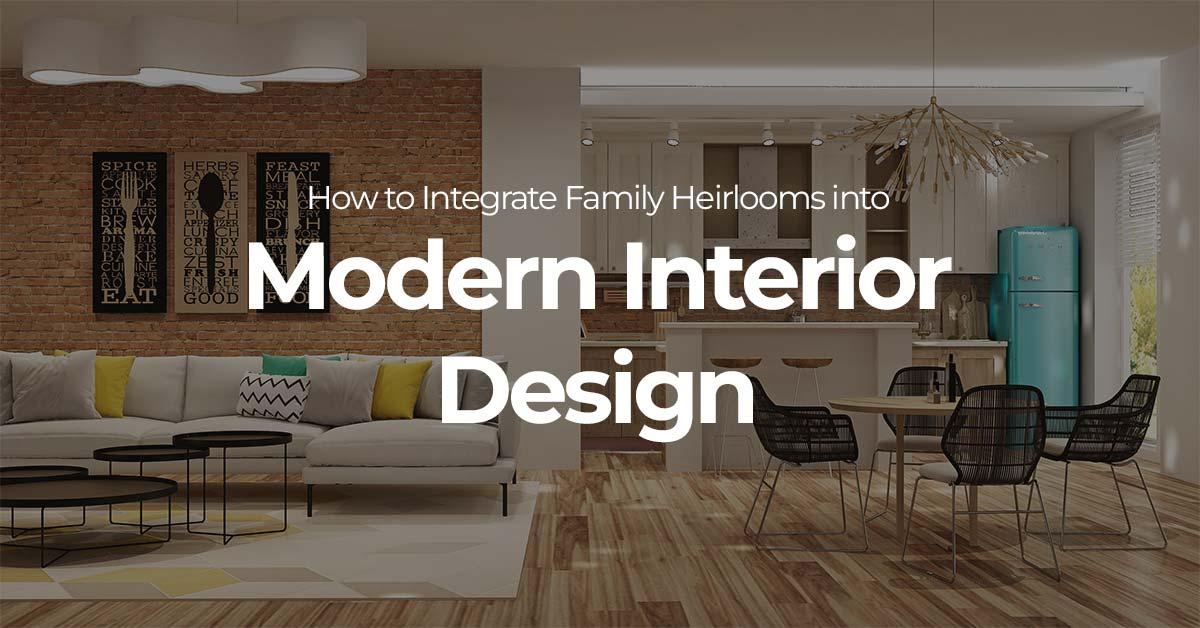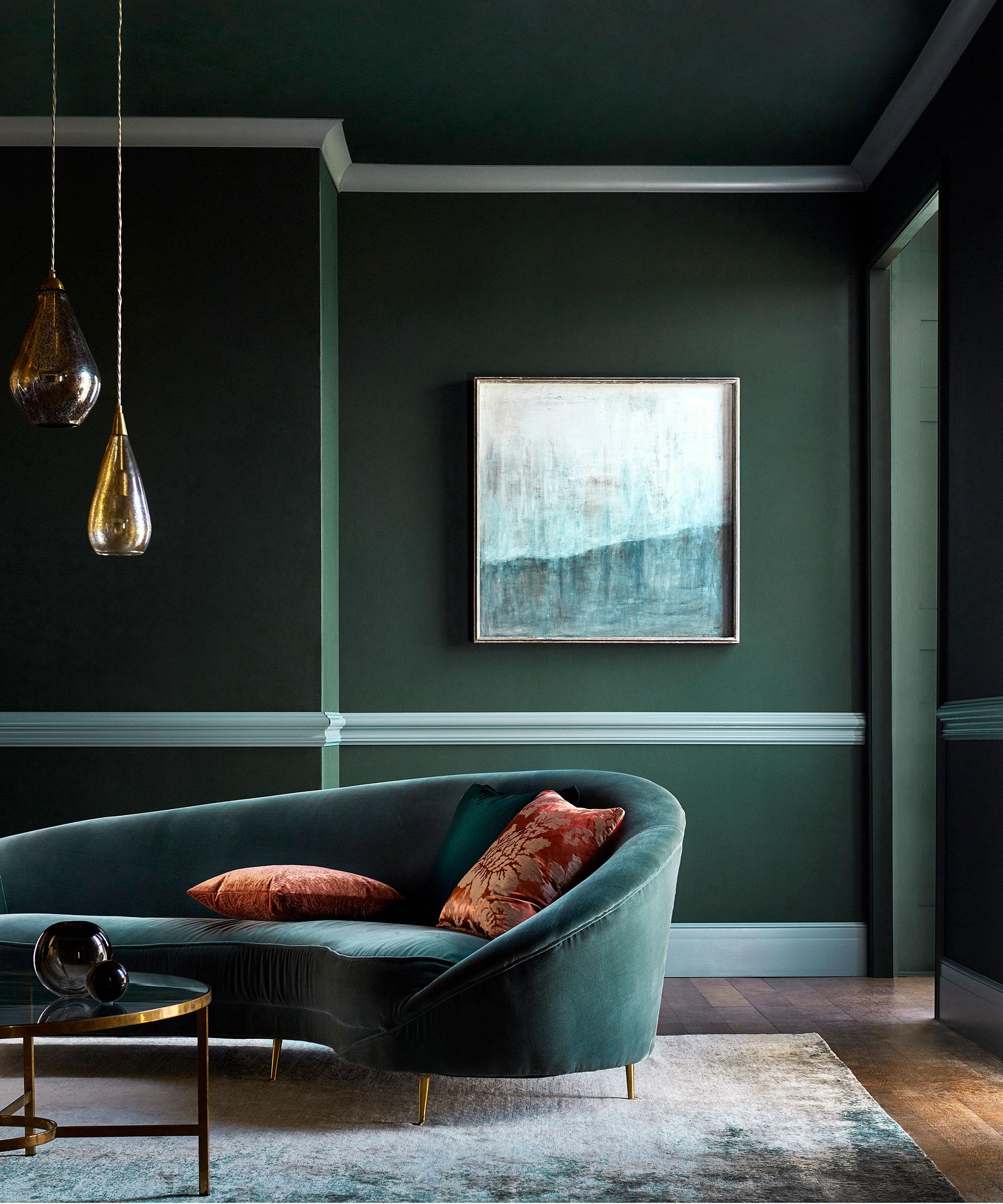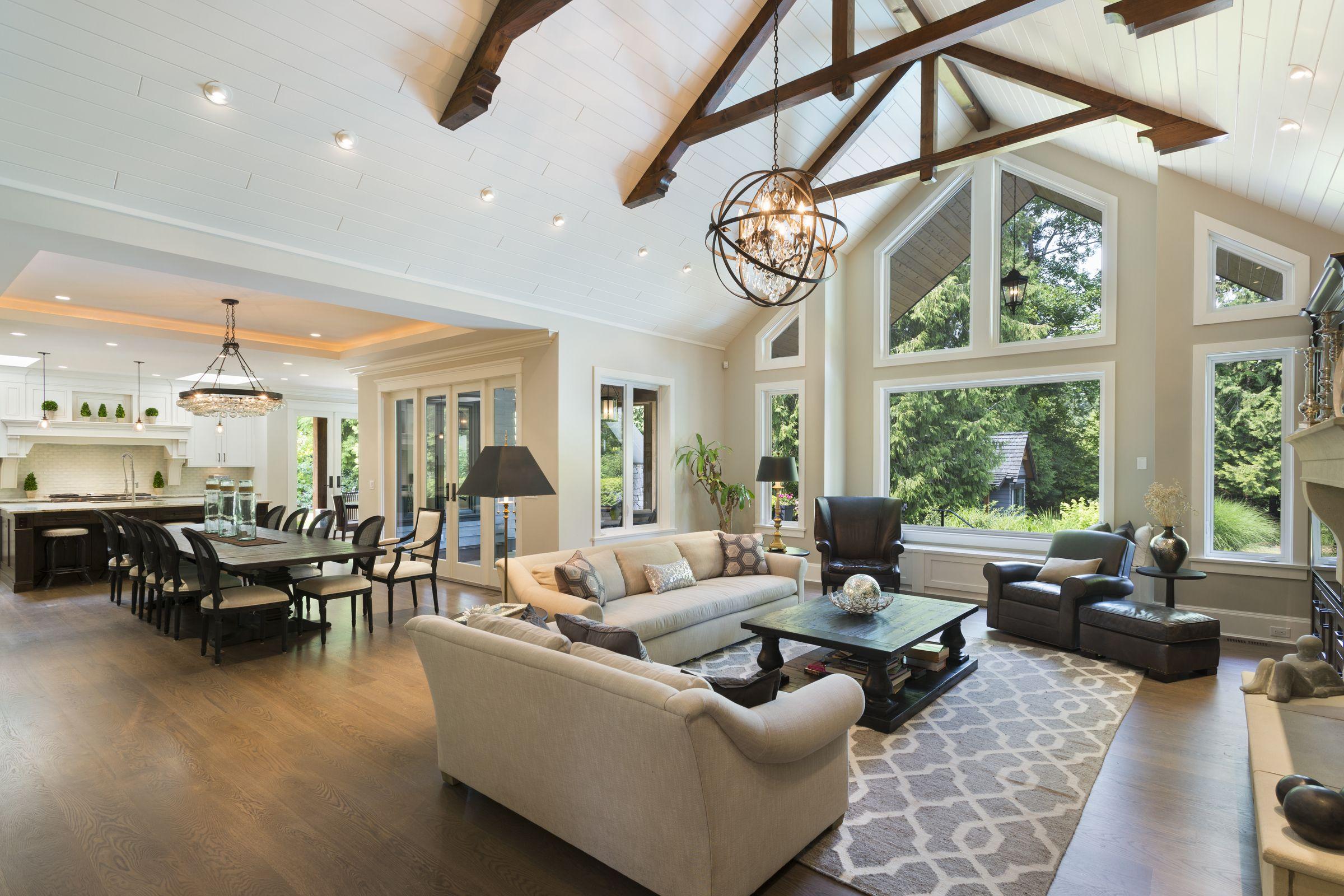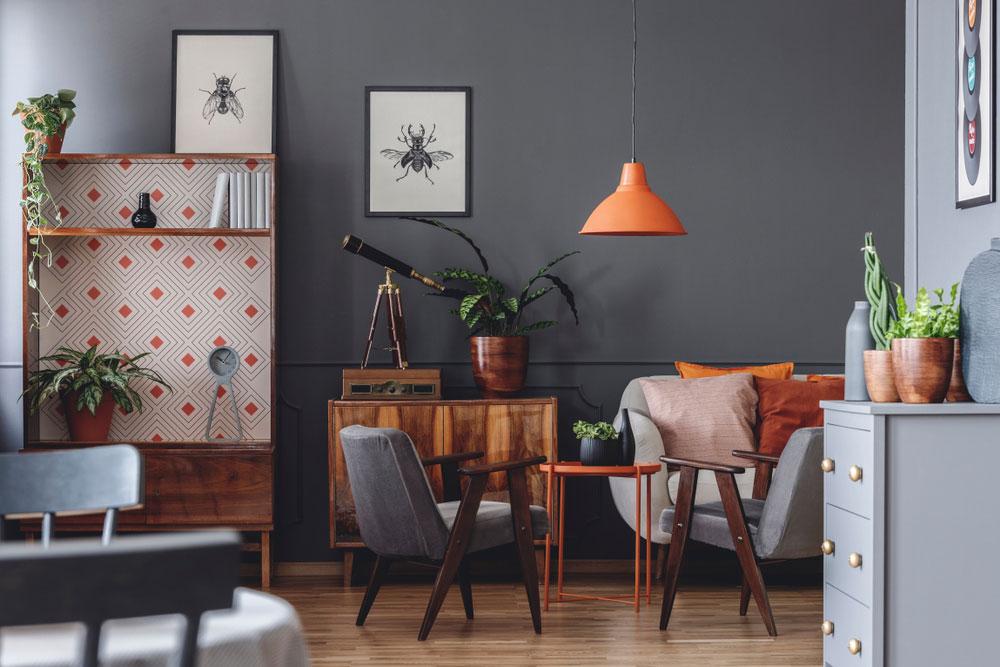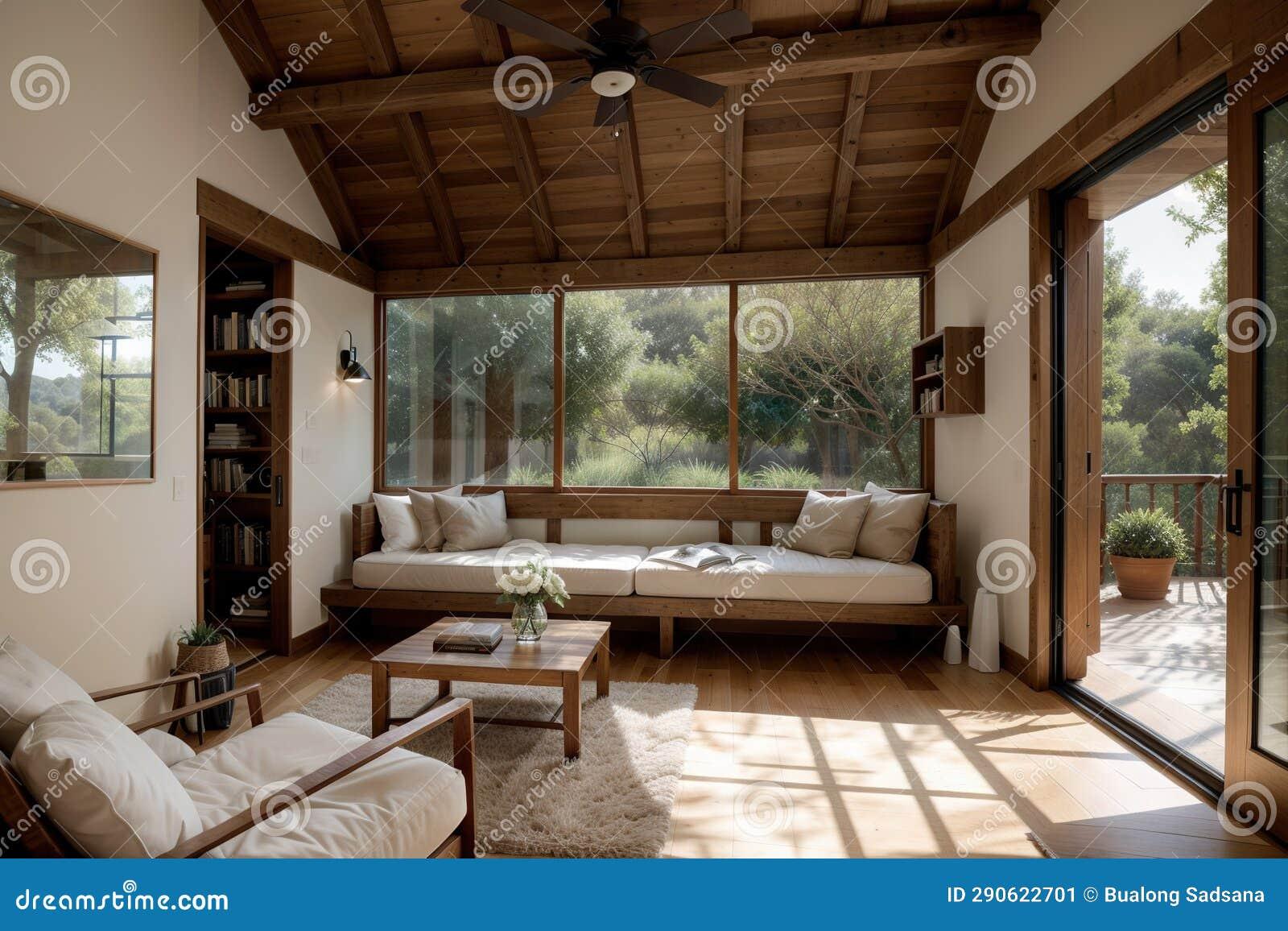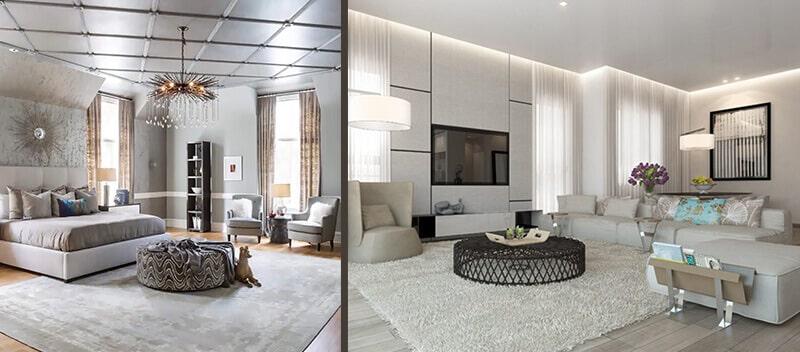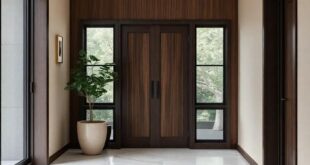Welcome to a world of creativity and transformation! If you’ve been feeling stagnant in your living space or simply crave a fresh perspective, you’re in the right place. In this listicle, we’re excited to share 24 inspiring interior design ideas that can breathe new life into any room of your home. Whether you’re drawn to bold colors, minimalist aesthetics, or eclectic blends, each idea presented here is a gateway to unlock your design potential. You can expect to discover practical tips, innovative concepts, and creative hacks that cater to varying tastes and budgets. Prepare to be inspired as you envision the possibilities that await your personal sanctuary!
Embrace biophilic design: integrate plants for a breath of fresh air
Incorporating greenery into your interior spaces not only enhances aesthetics but also promotes well-being. Potted plants, hanging planters, and vertical gardens can transform dull corners and open up areas, breathing new life into your rooms. Imagine stepping into a room adorned with a lush fiddle leaf fig or a cascading string of pearls that draws the eye up and encourages a sense of tranquility. By choosing a diverse mix of plants, such as succulents, ferns, and even edible herbs, you can create a dynamic, living environment that evolves with the seasons.
Think about integrating nature into your design thoughtfully. Utilize shelves or corner stands to create mini indoor jungles, or opt for larger statement plants in empty spaces to make an impact. Complement your greenery with natural materials like wooden furniture and stone accents to create a cohesive and organic feel. Additionally, consider incorporating a small indoor water feature or an aquarium for an added touch of serenity. For inspiration on plant choices and care tips, check out The Happy Gardening Life, where you’ll find ideas to keep your indoor oasis thriving.
Layer textures for a cozy atmosphere in your interior design
Creating warmth and coziness in your interior can be effortlessly achieved through the artful layering of textures. Combine soft fabrics like plush throws and velvety cushions with natural materials such as wicker baskets or wooden elements to add depth and personality to your space. Consider integrating a mix of textured wall coverings, such as shiplap or fabric panels, to create a visually appealing backdrop. Don’t forget to incorporate area rugs that help define areas while adding an inviting touch underfoot. This combination not only enhances the visual interest but also invites you to explore the differences in texture with your senses.
To elevate the cozy vibe, focus on the details—styling your shelves and tables with various texture-rich items such as ceramic vases, woven coasters, and metallic accessories. Use a color palette that complements these textures, opting for warm, earthy tones or soft pastels. Consider a small
| Texture Types | Examples |
| Soft | Fleece, Chenille, Cashmere |
| Natural | Jute, Wood, Cotton |
| Metallic | Brass, Copper, Silver |
to guide your design choices. The final touch is to layer your lighting; opt for dimmers or lamps with soft bulbs that cast a warm glow, further encapsulating that cozy atmosphere you desire in your home. For more inspirations on texture incorporation, explore Apartment Therapy.
Bold statement walls reimagine your interior design landscape beautifully
Transform your living space with a bold statement wall that can serve as a captivating focal point in any room. This trend encourages creativity, allowing homeowners to express their unique style through diverse materials and colors. Consider using striking wall decals, vivid paint, or creative wallpaper patterns that draw attention and evoke emotion. A well-executed statement wall can dramatically shift the atmosphere of a space, offering a fresh perspective that invites conversation and admiration.
For those who prefer a more tactile approach, you might explore options like textured plaster, wood paneling, or even metallic finishes. These elements not only add visual interest but also enhance the sensory experience of your home. Create a stunning backdrop for artwork or furniture by selecting complementary decor that harmonizes with your bold choice. If you’re looking for more inspiration on this design trend, check out Houzz to explore endless possibilities of statement wall designs that can elevate your interior aesthetic.
| Material | Style Impact |
|---|---|
| Bold Paint | Energy and vibrancy |
| Textured Plaster | Depth and warmth |
| Wood Paneling | Natural elegance |
| Metallic Finishes | Contemporary flair |
Incorporate vintage pieces for timeless charm in your interior design
Incorporating vintage pieces into your interior design can breathe life into any space, blending history with modern aesthetics for a timeless charm. Consider using antique furniture that serves as conversation starters. A beautifully restored wooden sideboard or a mid-century modern chair can create focal points in your living room or dining area. To complement these pieces, try adding retro decor items like vintage globes, old travel posters, or unique lamps that reflect a bygone era. Each element brings not just style, but a story that enriches your home’s narrative.
When selecting vintage pieces, balance is key. Mix and match styles for an eclectic yet harmonious look. For example, pair a distressed farmhouse table with sleek, contemporary dining chairs, or place a vintage rug under a modern coffee table. Don’t shy away from using color; bold hues in vintage textiles can enliven neutral spaces. Remember that accessorizing with vintage finds extends beyond furniture—artifacts such as old books, mirrors, and ceramics can create layers of interest. Explore various sources like flea markets and online shops to discover unique treasures that resonate with your style. For some inspiration, check out apartmenttherapy.com and find pieces that speak to your aesthetic.
Use mirrors strategically to amplify light in your interior design
Transform any space into a luminous sanctuary by thoughtfully incorporating mirrors into your decor scheme. Their reflective properties work wonders in amplifying natural light, making rooms feel larger and more open. Consider placing a large floor mirror opposite a window; this not only doubles the light entering the room but also creates a dynamic visual element. Framed mirrors in ornate styles can enhance your decor theme, while sleek, modern designs can complement contemporary aesthetics. Hang mirrors at varied heights to create a captivating gallery wall that reflects different angles of light throughout the day.
Don’t limit mirrors to just walls; utilize them as decor pieces on furniture. A mirrored coffee table can add a touch of elegance while also enhancing the brightness of the room. For a layered effect, consider using mirror placemats or decorative trays to catch the light on surfaces throughout your home. This simple adjustment can lead to stunning transformations in your space. Remember that less is often more; a well-placed mirror can serve as a stunning focal point without overwhelming your design. For additional tips on using mirrors in home decor, check out House Beautiful.
Play with color palettes to evoke emotional responses in interior design
When it comes to transforming a space through color, understanding the psychology behind different hues can significantly enhance your interior design. Warm tones like red and orange can invigorate a room, creating a cozy atmosphere perfect for social interactions. In contrast, cool hues such as blue and green foster tranquility and are ideal for spaces intended for relaxation, like bedrooms or reading nooks. Consider using a mix of these colors in an open-concept living area, where vibrant accents can stimulate conversation while softer tones contribute to a more peaceful environment. Playful use of accent walls in bold colors can also draw the eye, making a room feel both lively and balanced.
Lighting plays a pivotal role in how colors are perceived, so be sure to test out paint samples under various lighting conditions before finalizing your choices. Neutrals, while versatile, can be elevated by introducing splashes of brighter shades through decor items like cushions, artwork, or rugs. Opt for a color palette that resonates personally; perhaps earthy tones and textures for a grounded feel, or pastel shades to inspire optimism and create a soft, inviting cheer. Ultimately, the key is harmonizing your selected colors to reflect the mood you want to evoke and to create a cohesive flow throughout your space. For more insights into color psychology, check out Color Psychology.
Minimalist interiors create a serene environment in sleek interior design
Embracing a minimalistic ethos in interior design not only promotes an uncluttered atmosphere but also encourages a sense of peace and tranquility. By focusing on essential elements, minimalist interiors allow for a fluidity of space, enabling natural light to shine through and create an inviting ambiance. Utilize neutral color palettes, such as whites, beiges, and soft grays, to enhance the calming effect. Simple furnishings with clean lines, like a sleek sofa or a streamlined coffee table, serve as both functional and aesthetic anchors in your living space.
To truly capture the minimalist vibe, consider incorporating natural materials like wood, stone, and metal. These elements add warmth and texture while keeping the overall design uncluttered. Accessorizing with a few, carefully selected art pieces or plants can infuse your interior with character without overwhelming the eye. Opt for storage solutions that blend seamlessly into the environment, ensuring that personal items are neatly tucked away. For more inspiration on achieving a minimalist look, visit Architectural Digest.
Create multifunctional spaces to maximize small areas in interior design
Transforming small areas into multifunctional spaces is key to maximizing efficiency and style in interior design. One popular approach is to incorporate modular furniture, which can be easily reconfigured according to your changing needs. For instance, a sofa bed can serve as both seating and sleeping space, while nesting tables can provide extra surface area without taking up too much room. Consider integrating pieces with hidden storage, such as ottomans that open up to store blankets or books, allowing you to minimize clutter while keeping essentials close at hand.
Another effective strategy is to use partitions creatively to delineate zones within a compact area. Open shelving units can serve as dividers that provide both separation and display opportunities, effectively zoning off a workstation from a relaxation area. Take advantage of vertical space by installing wall-mounted desks or folding tables that can be tucked away when not in use. Additionally, utilizing a murphy bed or convertible furniture allows you to maximize the floor space during daytime activities. For more ideas on small space solutions, check out House Beautiful.
Emphasize natural light as a focal point in interior design
Harnessing the beauty of daylight can transform any room into a vibrant and welcoming space. Consider using large windows or sliding glass doors that allow sun rays to flow in freely, creating an airy feel. Strategically placing mirrors opposite these windows can amplify the light, making the area feel more expansive and open. Incorporating light-colored furnishings can also enhance the luminosity of your space, reflecting natural light and uplifting the ambiance seamlessly.
When designing your layout, think about the placement of furniture. Avoid blocking windows or natural light sources with bulky pieces, opting for lower-profile furniture instead that maintains a clear line of sight. Utilizing translucent curtains or shades can also soften direct sunlight while still allowing that warm glow to permeate throughout. consider adding skylights in areas where windows may not be an option, inviting the heavens inside and creating a delightful connection with nature. For more ideas on maximizing light in your home, check out Houzz!
Unique lighting fixtures can redefine your interior design aesthetic
Transforming your space is as simple as swapping out traditional light fixtures for unique, eye-catching designs. Consider fixtures like geometric pendant lights that create an architectural focal point, or vintage Edison bulbs that bring a sense of nostalgia and warmth. For a modern twist, smart LED panels can serve as both art and illumination, responding to your mood and preferences. Whether you’re going for a chic industrial vibe or a whimsical bohemian look, the right lighting can redefine the ambiance, making rooms feel expansive or cozy based on your needs.
Think outside the box with unexpected materials and styles. Macramé hanging lights can add a boho touch to a minimalist space, while artistic sculptural lamps bring a conversation piece directly into your living room. Wall sconces that double as art can beautifully accentuate gallery walls or narrow hallways. Choosing fixtures that reflect your personality not only enhances your interior design but also elevates the overall aesthetic of each room. For more design ideas, explore resources at architecturaldigest.com.
Warm wood tones add warmth to your contemporary interior design
In the realm of contemporary design, the integration of warm wood tones creates a striking contrast against sleek, minimalist elements. Imagine rich oak or walnut furnishings that introduce a sense of coziness to a stark space, elevating it from generic to inviting. Consider incorporating wooden accent walls or floating shelves crafted from reclaimed wood, which not only showcase your style but also narrate a story of sustainability and craftsmanship. To enhance the inviting ambiance, you could also add natural fiber rugs that complement the wooden textures beautifully, softening the room with their warm tones and tactile quality.
Textured wooden elements can also bridge the gap between modern designs and traditional warmth. Replace cold metallic fixtures with brushed brass or copper lampstands to harmonize with the woodwork. Use a palette of warm, earthy colors—like terracotta or soft sage green—paired with your wooden pieces to enrich the overall aesthetic, creating spaces that inspire comfort and creativity. Explore unique combinations such as wooden dining tables paired with contemporary chairs or wood paneling with modern artworks, crafting an environment that marries sophistication with a welcoming vibe. For more ideas on incorporating wood into your design, check out House Beautiful.
Incorporate open shelving to showcase personality in your interior design
Open shelving is a brilliant way to merge functionality with aesthetics, allowing you to display your favorite items and bring character to your space. By choosing shelves that complement your existing decor, you can create a cohesive look while showcasing your individual style. Consider incorporating a mix of books, plants, and decorative pieces to add depth and visual interest. The beauty of open shelving lies in the ability to curate displays that tell your story; each shelf becomes a canvas for your personality to shine through.
To make the most of your open shelves, think about the color palette and materials that match your interior design theme. You can choose from a variety of styles, such as rustic wood for a cozy vibe or sleek metal for a modern touch. Incorporate elements such as:
- Artistic dishes that reflect your culinary passions
- Unique collectibles that spark joy and conversation
- Framed artwork to personalize the space
- Seasonal decor for a fresh update
To further inspire your shelving layout, consider creating a color-coordinated display using a simple table layout:
| Item Type | Color Palette | Style Idea |
|---|---|---|
| Books | Neutral Tones | Stacked horizontally or vertically |
| Plants | Green and Earthy | Mix of heights for visual interest |
| Decorative Objects | Bright Accents | Symmetrical arrangement |
By thoughtfully curating your open shelving, you can create an engaging focal point in your room that is both functional and reflective of your unique style. For more ideas on incorporating shelves into your home, visit Apartment Therapy.
Utilize wallpaper for easy transformation in your interior design scheme
Wallpapers can serve as a dynamic canvas for your interior spaces, offering a quick and impactful solution for an aesthetic uplift. With a plethora of designs available—from bold geometric patterns to serene nature murals—your walls can easily become a focal point in any room. Consider using wallpaper to create a stunning accent wall that draws the eye. For instance, a vibrant floral print can breathe life into a dull living room, while a soft pastel pattern may transform a bedroom into a peaceful retreat. Here are a few ideas on how to effectively incorporate wallpaper into your design scheme:
- Feature Walls: Choose one wall to showcase a standout pattern, allowing the other walls to complement it with solid colors.
- Ceilings: Don’t overlook the fifth wall—adding wallpaper above can provide a surprising and enchanting twist.
- Furniture Accents: Use wallpaper to line the insides of shelves or cabinets for an unexpected pop of color.
- Texture Play: Consider textured wallpapers to add depth and warmth, making your space feel cozy.
Additionally, the versatility of wallpaper allows for experimentation without the commitment of paint. Removable wallpaper options make it easy for renters or those who frequently change their decor style. You can mix and match patterns to create a unique, layered look, or opt for a subtle paper to lend an air of sophistication to your space. Below are a few types of wallpaper styles to consider:
| Wallpaper Style | Description |
|---|---|
| Floral | A classic option that evokes nature and can range from vintage to modern. |
| Geometric | Offers a contemporary touch, perfect for creating visual interest. |
| Textured | Adds dimension and depth, ideal for cozy and inviting spaces. |
| Stripes | Can make a room feel taller or wider, based on the orientation. |
For more inspiration and ideas on how to use wallpaper creatively, visit Houzz.
Create cozy nooks for relaxation in your interior design layout
Transforming your home into a sanctuary of calm and comfort can be as simple as creating cozy nooks. Imagine a corner of your living room framed by soft, flowing drapes, where a plush armchair invites you to sink into its embrace, cradled by an assortment of textured cushions. For added charm, dot your nook with a variety of potted plants to infuse a touch of nature. Consider incorporating a small side table adorned with your favorite books and a warm mug of herbal tea to make your retreat genuinely inviting. The goal is to craft a space where relaxation meets aesthetics, effortlessly blending different elements for both comfort and style.
Another delightful option is to curate a reading nook by a window, utilizing natural light to enhance the cozy atmosphere. A slim bookshelf can serve as the backdrop filled with your literary treasures, while a bright throw blanket draped over a rocking chair invites you to unwind. Don’t shy away from using soft lighting—an elegant floor lamp or hanging fairy lights can create an ethereal glow as evening falls. To elevate your nook, consider layering rugs that add depth and warmth, making it a multi-sensory experience perfect for getting lost in a good story.
| Cozy Nook Essentials | Function |
|---|---|
| Plush Armchair | Ultimate comfort |
| Cushions | Support & style |
| Side Table | Convenient surface |
| Plants | Natural touch |
| Soft Lighting | Ambient atmosphere |
To gather more inspiration on creating your perfect relaxation space, check out House Beautiful for innovative ideas and stylish designs.
Balance bold patterns with neutral tones in your interior design
When it comes to making bold statements in your home, consider incorporating striking patterns through textiles, wallpaper, or artwork while keeping the rest of your space grounded with neutral tones. This balance allows for an exciting aesthetic that draws the eye without overwhelming the senses. Mixing patterned cushions with a sleek, solid-colored sofa can add depth to your living room, while layered rugs featuring dynamic designs can bring personality to an otherwise understated floor. Opt for neutral walls and larger furniture pieces to create a harmonious backdrop that allows these standout patterns to shine.
Another clever approach is to use accent walls adorned with unique prints or geometric shapes against a canvas of soft, muted hues. For example, a vibrant floral wallpaper in the dining room can be paired with a simple wooden dining table and subtle overhead lighting. Complement these striking elements with minimalistic decor, such as simple vases or unadorned bookshelves, to ensure the patterns remain the focal point. Explore additional design ideas and inspirations at housebeautiful.com to infuse your space with creativity while maintaining a balanced harmony.
Use art as a dramatic focal point in your interior design
Incorporating art into your interior design can transform an ordinary room into an extraordinary space. By selecting a statement piece that resonates with your style, you create a captivating focal point. Whether it’s a large abstract canvas that sparks conversation or a striking sculpture that invites interaction, art adds character and depth. Consider using art that complements the color palette of your room, ensuring it harmonizes with furniture and décor. This visual cohesion elevates the overall aesthetic, making the art feel like an integral part of the design rather than just an accessory.
To maximize the impact of your chosen artwork, consider its placement carefully. Hang pieces at eye level or display them in a dedicated gallery wall for a curated look. You can also create a thematic arrangement by clustering art pieces that share a common style or color scheme. If you’re short on wall space, think outside the box: a bold floor piece or an oversized canvas propped against a wall can serve as an unexpected focal point. Pairing art with unique lighting can enhance its beauty; consider spotlighting your favorite artwork with chic sconces or pendant lights for added drama. For further inspiration, explore resources at houzz.com.
Opt for sustainable materials for eco-friendly interior design solutions
Transforming your living space into an eco-friendly haven is easier than you think when you choose sustainable materials. Incorporating bamboo flooring not only adds a warm, inviting touch to your interiors but also boasts a low environmental impact. This fast-growing plant is a renewable resource, making it a perfect choice for those looking to reduce their carbon footprint. Additionally, consider reclaimed wood for furniture and fixtures. Each piece tells a story of its own, bringing character and uniqueness to your space while promoting the idea of recycling and upcycling.
Don’t overlook the potential of natural textiles such as hemp, organic cotton, and linen for curtains or cushions. These materials are produced without harmful pesticides and are biodegradable, thus easing the impact on our planet. For an added touch of creativity, explore recycled glass decor items; they not only sparkle in the sunlight but also contribute to reducing landfill waste. Pair these materials with plants to enhance air quality and atmosphere, showcasing the beauty of nature inside your home. For more inspiration, visit Green Building Advisor to discover more about sustainable design options.
Invest in quality furnishings for long-lasting comfort in interior design
Investing in quality furnishings not only enhances the aesthetic appeal of your interior but also ensures that your space remains comfortable and functional for years to come. Durable materials like solid wood, high-grade leather, or sustainable fabrics not only resist wear and tear but offer a timeless charm that can adapt to various decor styles. When choosing pieces like sofas, chairs, and tables, look for those crafted with craftsmanship in mind—those that tell a story and add character to your home. Quality furnishings are often more than just a purchase; they’re an investment in your day-to-day life and a reflection of your personal style.
To help you make informed decisions, consider the following features when selecting your furnishings:
- Ergonomics: Essential for comfort, especially in seating and workspaces.
- Versatility: Items that can be styled in multiple ways or serve different functions.
- Timelessness: Classic designs that withstand changing trends.
For instance, a well-built dining table can become the centerpiece of family gatherings, while an elegant sofa can provide a sanctuary for relaxation. Additionally, you can explore various brands known for their durable designs at woodmagazine.com. The key is to choose elements that not only fit your space but also elevate your lifestyle!
Personalize with family heirlooms to connect emotionally in your interior design
Incorporating family heirlooms into your interior design is a powerful way to enrich your living space with stories and emotional connections. Each piece carries with it a legacy, making your environment not just a place to live but a canvas upon which familial history is painted. Consider displaying grandma’s vintage china in a hutch, or using great-grandfather’s rocking chair as a statement piece in your living room. Such elements can offer a stunning contrast to modern decor, creating a harmonious blend that speaks to both nostalgia and contemporary style.
To effectively integrate these treasures, think about creating a designated area that highlights their significance. You could design a gallery wall featuring framed family photos next to heirloom textiles, bringing warmth and character to a bare space. Alternatively, crafting a dedicated corner with a special heirloom table or trunk can serve as a memory nook, adorned with bits of history that spark conversation. Embrace the imperfections of these items; their wear and tear tell stories that new purchases simply can’t match. For further inspiration on styling with cherished pieces, check out House Beautiful for expert tips and tricks.
Employ accent colors to revitalize your space in interior design
One of the most impactful ways to breathe new life into your home is by strategically incorporating accent colors. These vibrant hues can become focal points that draw attention and energize your space. Consider adding bold throw pillows, a colorful area rug, or even a striking piece of artwork. By choosing one or two standout colors and weaving them throughout the room—perhaps in lampshades, curtains, or decorative vases—you create a cohesive yet dynamic look that invigorates your environment.
For a more dramatic effect, you might opt for a feature wall painted in an intense shade, complemented by lighter tones in the furnishings or decor. Not only does this approach create depth and interest, but it also encourages a sense of harmony. Pairing an electric blue with soft gray or a bright mustard with neutral whites can yield stunning results. Discover additional inspiration and tips for selecting your palette on sites like Pinterest, a treasure trove for design enthusiasts.
Adopt an open floor plan for fluidity in interior design
Switching to an open floor plan can dramatically transform your living space by promoting seamless transitions between areas. Imagine cooking in the kitchen while interacting with family in the living room or dining area. This layout not only enhances communication but also encourages a sense of togetherness. Maximize natural light through large windows that flood the entire space, creating an airy ambiance. Incorporating strategically placed mirrors can further amplify this effect, making your home feel more expansive and inviting.
To maintain a cohesive look, consider using consistent materials and color palettes throughout the space. A unifying theme, such as a neutral color scheme with vibrant accents, can help different zones feel connected while retaining their unique purposes. You might also want to explore multifunctional furniture; for example, a stylish island can serve as both a cooking station and a casual dining area. By adopting this versatile approach, you’ll create an elegant, fluid environment that is perfect for both entertaining guests and enjoying quiet moments alone. For more design inspiration, visit houzz.com.
Curate curated collections as decor statements in interior design
One of the most captivating approaches to personalizing your living space is to use carefully curated collections as bold decor statements. Imagine transforming a blank wall into an artistic homage by displaying an eclectic mix of objects—think vintage books, striking art pieces, or a collection of colorful ceramics. Such arrangements breathe life into interiors while showcasing your personality and interests. They create conversations and invoke curiosity, drawing guests into the narrative behind each piece.
To elevate the aesthetic further, consider incorporating display cases or shadow boxes that allow you to change elements seasonally or based on your mood. Utilize lighting, such as spotlights, to highlight these curated collections, adding depth and interest. You can also use materials like reclaimed wood or sleek metal to frame your displays, unifying the look with your overall design theme. This method seamlessly integrates your passions into your home, crafting an inviting atmosphere full of character. Explore more ideas at Architectural Digest.
Harmonize indoor and outdoor spaces for a cohesive interior design
To create a seamless flow between your indoor and outdoor spaces, consider using similar materials and color palettes throughout. For instance, if your kitchen features warm wooden cabinets, extend that warmth outdoors with a wooden dining set or decking. Implementing large, overlapping areas of a cohesive color scheme can visually tie these environments together. Consider using soft neutral tones found in both outdoor furniture and indoor textiles; this will create a tranquil, uniform look that enhances both spaces. Additionally, the clever use of plants and natural elements can blur the lines between inside and outside, making the transition feel a natural part of your home’s overall design.
Incorporating elements such as sliding glass doors or bi-fold windows can dramatically enhance the connection between your indoor and outdoor areas, allowing natural light to flood in while offering an unobstructed view of the outside. Features like outdoor artwork or decorative lighting that echo indoor design themes reinforce this harmony. Consider bringing in outdoor rugs that mimic the style of your living room or kitchen textiles to maintain your design narrative. To explore more ideas on blending your spaces effortlessly, you can visit houzz.com for further inspiration.
Design around your lifestyle for practical, inspiring interior design
- Embrace Multifunctionality: Choose furniture that serves multiple purposes, such as a coffee table with storage or a bed with drawers. This not only saves space but also keeps your home organized, reflecting a practical side to modern living.
- Personalize Your Decor: Infuse your personality into the space with art and decor that inspires you, be it a collection of travel souvenirs or family portraits. Surrounding yourself with what you love can make even the simplest designs feel special.
| Activity | Space Solution |
|---|---|
| Home Office | Use a corner desk that doubles as storage with shelves above. |
| Relaxation | Create a cozy reading nook with a comfy chair and built-in bookcase. |
| Family Time | Opt for a sectional sofa with plenty of seating and modular components for versatility. |
- Choose Soothing Color Palettes: Colors can greatly influence your mood and productivity. Opt for soft hues like muted greens or comforting beiges that create a calming atmosphere, helping you unwind or focus better according to your needs.
- Incorporate Natural Elements: Bring the outdoors in with houseplants, natural light, and sustainable materials. This not only enhances the aesthetics but also contributes to your overall well-being, creating an inspiring environment.
For more ideas on crafting a space that resonates with your way of living, explore Love Property.
The Way Forward
As we wrap up our journey through these 24 inspiring interior design ideas, we hope you’ve discovered plenty of inspiration to breathe new life into your space. Whether you’re looking to create a cozy nook, embrace bold colors, or incorporate sustainable elements, each idea serves as a stepping stone toward a home that reflects your unique style and personality. Remember, transforming your environment doesn’t have to be an overwhelming task; it can be a joyful exploration of creativity and self-expression. So grab your paintbrush, rearrange those cushions, and let your imagination guide you. Your dream space is just a few ideas away! Happy designing!
 decorifusta Garden and patio decoration inspiration
decorifusta Garden and patio decoration inspiration
